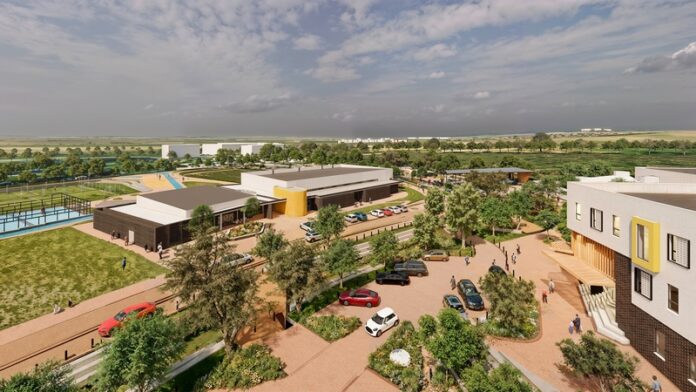
South Africa’s higher-education sector doesn’t lack investment, says Dr Stan du Plessis, the newly appointed Chief Executive Officer of STADIO Higher Education. What it lacks are the outcomes that should follow. An economist by training and inclination, Du Plessis believes the private higher-education sector can help close that gap through designing for efficiency, aligning qualifications to the world of work, and offering scalable access without sacrificing quality.
He believes STADIO’s new Durbanville campus, opening officially on 20 October 2025, embodies the group’s goal of quality at scale: a comprehensive campus built for efficiency, affordability and impact.
“Instead of many small, fragmented sites, STADIO invests in a few strategic campuses that can deliver full academic ecosystems,” Du Plessis explains. “The Durbanville campus demonstrates what it means to invest wisely – to create world-class infrastructure that will serve thousands of students for decades.”
Aiming for efficient use of resources
“South Africa spends more on post-school education as a share of national income than many wealthier countries,” Du Plessis says. “Yet our graduate output and employability rates remain stubbornly poor. The challenge isn’t funding; it’s how efficiently and effectively we use the resources we already have.”
He says that in pursuit of the group’s goal of broadening access to quality higher education, STADIO is applying the same principles that drive any successful economy: specialisation, coordination and accountability.
“Instead of duplicating effort, we break down the process of academic delivery into dedicated expert functions – curriculum design, quality assurance, assessment, lecturing and digital learning – then link them through strong coordination. That’s how you achieve scale with quality.”
For Du Plessis, efficiency is not synonymous with cost-cutting. It’s about freeing resources to expand access and maintain affordability. “We deliberately don’t price for the elite end of the market,” he says. “To serve the nation, we must keep the access price competitive – and that requires smart systems behind the scenes.”
Delivering in Durbanville
The Durbanville campus will welcome its first cohort of students in February 2026, with capacity for between 4 000 and 5 000 contact-learning students. It will host 20 qualifications across seven Schools (Education, IT, Law, Media and Design, Commerce, Architecture and Engineering) offering higher-certificate, undergraduate and postgraduate degrees.
Du Plessis says this investment supports STADIO’s broader mission to “serve the nation” by widening access to tertiary education and aligning studies to employability. “Our success won’t be measured only by enrolment or graduation numbers,” he says. “We’ll hold ourselves accountable for the job-market success of our graduates – whether they find employment in the fields we’ve prepared them for. That’s the true test of relevance.”
He argues that private higher-education institutions have an important role in South Africa’s development story. “We can experiment with new academic models, work closely with industry, and introduce flexibility that traditional universities often can’t,” he says. “We’re not competing against public universities; we’re complementing them – expanding national capacity and providing choice.”
That flexibility also extends to how students study. STADIO’s blended and distance-learning model remains central to its strategy, allowing students who can’t relocate or study full-time to access quality programmes online. “Durbanville strengthens our contact-learning capacity, but it also anchors a hybrid network that reaches students everywhere,” Du Plessis says.
Campus details
STADIO Campus will feature 29 classrooms and laboratories, a multi-purpose hall accommodating over 1 000 students, and a ground-floor Centre for Academic Success with library, study rooms and support services.
A signature Master Lab for IT will offer an interactive, technology-rich environment centred around a sculptural tree – a gathering place for collaboration and innovation. Two Engineering laboratories, equipped with 3D-printing, mechatronic and renewable-energy systems, will support the launch of Higher Certificates in Mechatronics and Renewable Energy in 2026, with further labs and degrees to follow in 2027.
Student wellbeing and community life are integral to the design. Facilities include formal netball courts, multi-use artificial courts for five-a-side soccer, volleyball and basketball, and a partnership with Durbell Rugby Club for competitive rugby.
Designed by BPAS Architects, the campus incorporates water-wise landscaping, rainwater harvesting, and pedestrian-friendly circulation. It forms part of a long-term plan to develop a vibrant tertiary-education hub in the northern corridor of Cape Town – supporting STADIO’s goal of broadening access to quality higher education across South Africa.

